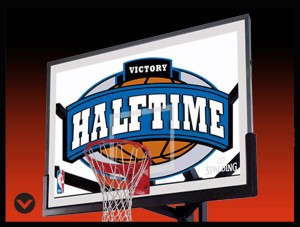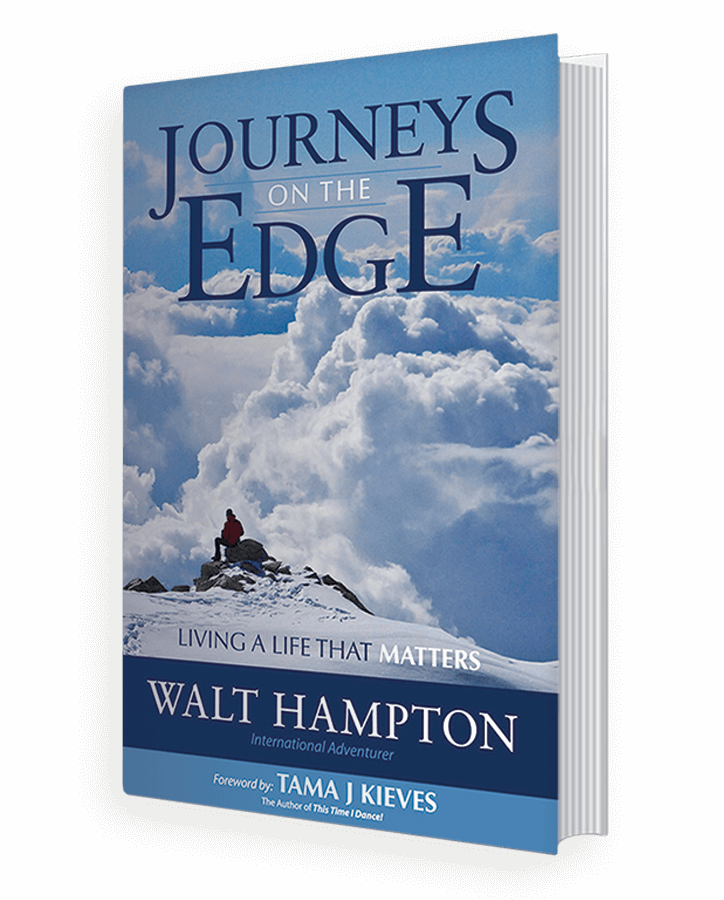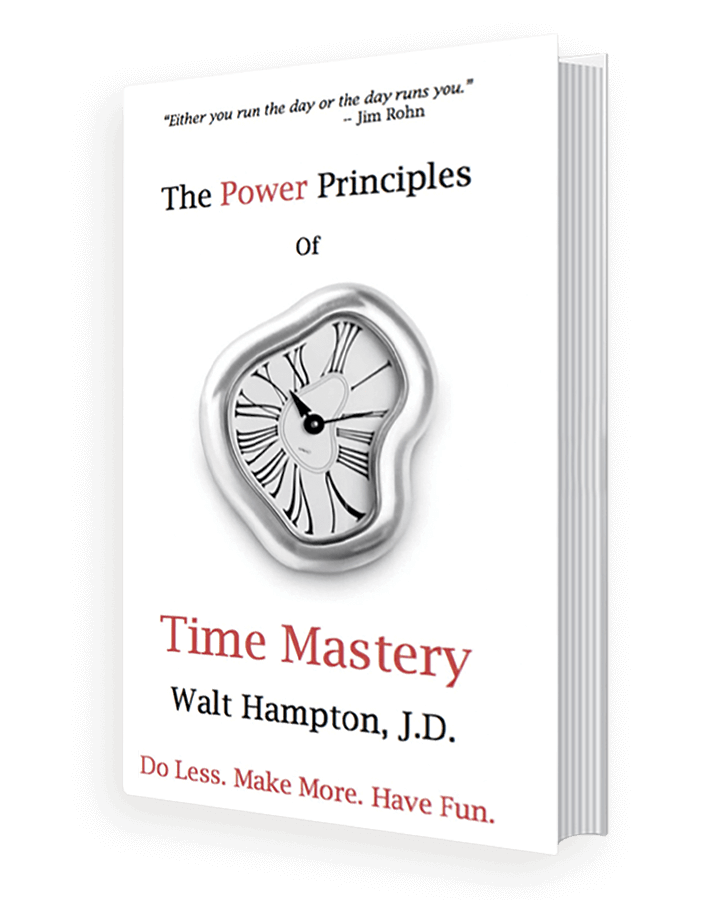Welcome to my blog
Grow & Scale A Business That Will Set You Free
Just Sit There
I laughed out loud this week when I saw Internet sales guru Eben Pagan hawking meditation as a key tool for achieving business success.
When I first started practicing meditation more than 20 years ago, I hid it under the radar. It was considered weird and ‘out there.’ Kinda like the Moonies or TM and the Maharishi.
But over the course of years, I could see that it ‘worked:’ settling the mind, increasing focus, generating patience, and expanding awareness.
I could see its impact on how I parented; and how I interacted with clients.
I sought out teachers and read voraciously.
But I never talked about it.
Introduced in the West in the 70’s by Jack Canfield, Joseph Goldstein and Sharon Salzberg, mindfulness and meditation practice entered into the arena of psychotherapy in the mid-90’s with the publication of a book by Mark Epstein, M.D., Thoughts Without A Thinker.
The Dalai Lama became an example of how a practitioner leads on a world stage; and he became a proponent of scientific inquiry into the actual physiological benefits of a meditation practice.
Meditation centers grew up around the country; and places like the Omega Institute and Kripalu offered programs that dovetailed with their yogic practices.
But it still it remained ‘granola,’ vegan;’ something that you disappeared to do.
Then, gradually, over the last decade, the science came to the fore.
There is now actual empirical evidence substantiating that mediation, even after only a short period of practice, creates changes in molecular and gene expression, reducing inflammatory response.
Businesses like Apple and Google and Yahoo and Aetna began training their people in meditation and mindfulness; and encouraging it in the workplace!
Arianna Huffington of the Huffington Post incorporated the practice into her work with the Third Metric; and leaders from around the world embraced it at The World Economic Forum in Davos this past January.
Recent bestsellers like Dan Harris’ 10% Happier speak to the transformative power of the practice.
I introduced mediation at a national wealth management conference last year; and have been invited back again this year to do more. And I’ve even shared it with some of my lawyer colleagues at bar association workshops!
So now I talk about it. A lot. (And probably should have been much braver in the past. I might even have beat Eben Pagan to the punch!) 
Meditation is simple. It’s really just about sitting; in awareness; of your breath; of your thoughts; as they arise and pass away.
Nothing much more complicated than that. And while it looks really easy – almost stupidly easy – on its face, it’s not.
That’s why it’s called a practice.
But over time it will change your life. And, yes, lead to business success too.
I’ve long been an advocate for the proposition that health and wellness are essential conditions for all achievement; the cornerstones of peak performance in every area of your life.
Meditation, though, is the key to ensuring that you will sustain that peak performance over time, regardless of the challenges you face.
So don’t just do something. Sit there.
Space Exploration
I’ve been puttering in my garden. I love my garden. But I find puttering to be a challenge.
You see, I’m a big believer in action: Doing, achieving, accomplishing; moving like a shark lest I perish from inertia.
Steeped, as I am, in the cultural paradigm that, in order to succeed, I need to work longer, harder, faster, it is difficult for me to slow down.
Puttering sometimes seems aimless; pointless; wasteful.
But it’s not.
By puttering, I open up space for myself. I allow my mind to relax. I give myself the opportunity to think, reflect, create… and be.
Just be.
Every business leader we consult with, every professional we coach wants more time; they want – they yearn – for space.
The greatest crisis of our age is not terror in the world; it is the terror that we allow within ourselves.
The greatest crisis of our age is not that we don’t have enough, but that we have too much: too much information; too much noise; too much stimulation; too much to do.
The greatest crisis of our age is that we have lost touch with that that place of quiet, that still point within us.
We’ve lost the capacity to sit still, to be still, to know the beauty and the grandeur of the here and now.
We’ve lost the capacity to be: To just be.
When we give ourselves the gift of quiet, when we open up that space, our sense of possibility expands. We see the opportunities that we miss when we are racing to that imaginary finish line.
When we allow our minds – and our bodies – to relax – ideas flourish, insight lights, we create the ground for moments of “ah-ha.”
Commander Mark Divine, author of The Way of the Seal, teaches that we need the power of silence in order “to set the conditions to win.”
“Silence creates the space for you to think and thus see reality more clearly.”
“If you’ve ever noticed how good you feel after coming out of nature after an extended stay without your cell phone and laptop,” writes Devine, “here’s the reason why: It’s because you’ve slowed down enough to quiet your outer mind, allowing your inner wisdom to poke it’s head out a bit.”
And it is that inner wisdom that truly sets us apart; that allows us to excel and truly succeed at extraordinary levels. 
Habit 7 in Stephen Covey’s celebrated business classic, The 7 Habits of Highly Effective People is Sharpen the Saw. “Sharpen the Saw means preserving and enhancing the greatest asset you have—you,” Covey said.
Self care, self-renewal.
Opening up space.
Puttering.
Because we so firmly believe that, as leaders, we need this space to be effective, to make an impact, we’d like to invite you to join us for our 2014 Adventure Mastermind Retreat: A Time to Think – The Space To Lead. A rare opportunity to step off the hamster wheel and join together with other like-minded, highly successful folks who want to make a difference in the world; a luxury all-inclusive that will take your career, your leadership and you life to a whole new level.
Go To The Well
This is an encore of a piece first published in September 2011. Apropos as I re-visit the well… .
When you read this post, I will be at the well. For me, it’s a little place in West Cork perched on a hill overlooking the North Atlantic.
There is no TV, no Internet, no cell phone. There is the sound of the sea, and the wind in the trees. Nothing else. It is the place I go – not often enough – to rest and rejuvenate; to re-create.
All of us have these places – maybe far away – maybe close at hand – always too seldom visited – where we can refresh our spirits.
- a quiet little corner in the local library
- the mountain bike trail just outside of town
- a little church on Sunday mornings
- the coffee shop in the village an hour’s drive from here
- the beach side cottage; that little place in the mountains
We avoid these places because:
- it feels unproductive
- there’s too much to do
- we don’t have the time right now
- we haven’t done enough to give ourselves a break
- tomorrow will work better than today
And tomorrow stretches into next month. Into not at all.
When I came to the well this time ’round, I slept for two days – a sure sign I had been away too long. And now I sit and soak in the silence – and read and write and run and rest. And yes, still battle the demons within myself: am I wasting time?
A dear friend of mine confessed to me recently that he hadn’t gone to his well in quite awhile because he hadn’t “earned it” – he hadn’t done enough yet to justify going there.
Here’s the paradox of the well: It is the place – the Source – from which we draw our strength, not a just reward.
There is a truism among athletes: hydrate or die.
Go to the well. Go there today.
It’s Halftime!
There won’t be any racey ‘costume malfunction’ to talk about ’round the old water cooler on Monday morning; no half-time show, no marching band, no dazzling commercial break.
There won’t be any balls that drop or clocks that flash or hats to wear or horns to blow.
It’ll slide by quite unnoticed.
And the end of this month: Half the year. Gone already.
Remember way back when… when you thought about the year ahead? Your hopes and goals and dreams and aspirations? That new job, the fitness program, the book, the painting, the weight, the product launch, the relationship that was gonna get fixed, that trip you wanted to take? 
Yeah, I’m talkin’ to you… .
Where you ‘at?’
If you’ve been doing the work… if the game’s gone well: CONGRATULATIONS. Enjoy this half-time… Revel in the rewards of your hard-fought efforts; take in the view and celebrate your successes. (Certain achievement freaks I know aren’t very good at this… and time for rest and reflection are so critically important to the work we do.)
If, though, you’ve woken up and wondered where the time has gone, why it seems to be the same ol’ same ol’, you’re not alone…
But don’t despair: there’s still time.
Here’s the mistake most folks make though: They look at the calendar… it’s summer… vacations… kind hot in the northern hemisphere… (winter…cold in the southern… ). A lot of distractions; days off; kid activities; too humid to exercise; people tough to get a hold of; meetings, conferences difficult to convene…. way better to put that ‘thing’ I’ve been meaning to do off to September… yeah, fall is a much better time to start… Kids will be back in school. New beginning then… .
And the months will slide by… and September will come… And there will be other distractions and reasons not to begin.
The time is now.
In every moment, there is a chance to begin again.
If you haven’t started, start now. (Click HERE for our exclusive template that will help jump start you.)
Small consistent steps over time lead to magnificent results.
Live deeply into these long summer days ahead.
Don’t miss a one.
________________________________________________
This is an encore of a post first published on June 27, 2013.
The Lie
I’ve had the great privilege of spending time this past week with graduating high school seniors in anticipation of their commencements. 
One of the things I tell them is: Don’t believe “the lie.”
This is the lie we tell; the lie that was told to me; the lie teachers and parents and well-meaning adults tell; the lie I myself have told my own children; the lie we tell ourselves; the lie that each of us must battle every day:
IF you work hard, take all the AP courses get good grades, join lots of clubs, get involved in student government, do lots of extracurricular activities, do community service, take an SAT preparation course, write a great essay, graduate at the top of your class, get into a great college, one with a great name, an expensive college, work hard, get good grades, get involved in student government, volunteer, get an internship, get two internships, graduate at the top of your class, get into graduate school or a professional program, work hard, write for a journal, publish, present, graduate with honors, get a good job (you know, one with benefits), work hard, settle down, find a partner, get married, buy a house in a nice neighborhood with a big mortgage, get a nice safe car like a Volvo or a mini-van, in fact, get two nice cars, have 2.2 children, get a place at the shore, work a lot of hours, stay really busy and productive, see a lot of clients, sell a lot of product, network a lot, volunteer, sit on a lot of boards, belong to lots of civic organizations, become the boss, the manager, the partner, the senior partner, get the corner office… then… then… finally… you will be successful… and then…then… finally… you will be happy.
It’s an empty, hollow promise.
In groundbreaking research at Harvard, Shawn Achor, author of The Happiness Advantage, has demonstrated convincingly that it is happiness that fuels success, not the other way around. Happiness comes first.
Many folks who have lived that lie for decades find their way to my doorstep for coaching feeling discouraged, depleted and demoralized. They have all the toys, all of the indicia of “success;” and yet, inside, they are empty and miserable. They can’t figure out why.
Because, happiness is not “out there” just beyond some “cognitive horizon” (as Achor says).
Happiness is here; it is now; it is in this moment.
May we claim it for ourselves.
May we have the courage not to perpetuate the lie.
DOWNLOAD your FREE BOOK!

DOWNLOAD Your Free E-Book NOW! Click Below And Get Going!
Click below for your copy of Journeys!

You’ll Get A Signed Copy!
Click on the button for your copy of my brand new book “The power principles of time mastery!”

You’ll Get A Signed Copy!
Categories
Adventure
Finding The Way
Journeys
Leadership
Success
Ultra Training

